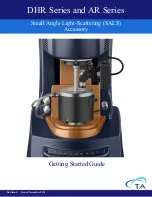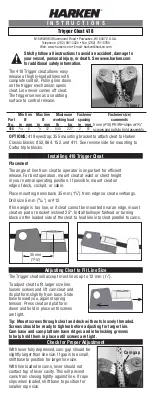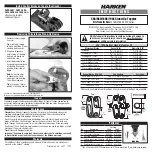
10
B-CONTROL
FADER
BCF2000-WH
USB-Mode U-2:
Fig. 4.2: Routing and use in USB mode 2
Your B-CONTROL sends MIDI data to the computer and receives
parameter feedback, provided that the software you are controlling
supports this function. MIDI IN and OUT A are available as a 16-
channel MIDI interface for your computer. OUT B functions as
MIDI THRU and forwards MIDI IN data unchanged. OUT B is not
accessible from the computer, and doesnt send any control data
from the B-CONTROL. This mode is ideal for applications in which
you control music software on your computer and at the same
time need a USB MIDI interface with one IN and one OUT.
Additionally, a MIDI keyboard can be tapped into at the MIDI THRU
(OUT B) connector. This way, you can use a master keyboard to
import your arrangements into the sequencer, or to play back
software synths. OUT A controls a hardware sampler, while a
MIDI expander (sound generator without a keyboard; e.g. a rack
synthesizer or a pure preset unit), an effects processor or similar
can be connected at OUT B, whereby it is directly controlled only
from the keyboard or is controlled only via program changes.
USB-Mode U-3:
Fig. 4.3: Routing and use in USB mode 3
This is surely the most often used standard mode with computer
applications.
This setting is optimal for controlling software while all MIDI
connectors are used as a USB-MIDI interface for the computer.
With this function, there are 16 input channels and 32 output
channels available to your music software (IN and OUT A +
OUT B).
The B-CONTROL transmits its data via USB to the computer.
The availability of parameter feedback from the computer to the
B-CONTROL depends on the software your are controlling. MIDI
expanders can not be directly accessed from the keyboard in this
operating mode. This operating mode is only used to import MIDI
tracks into the sequencer.
4. OPERATION
All manuals and user guides at all-guides.com










































